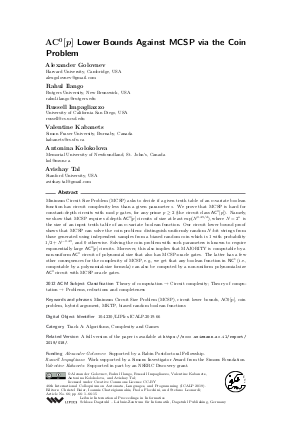LIPIcs.ICALP.2019.66.pdf
- Filesize: 0.52 MB
- 15 pages

 Creative Commons Attribution 3.0 Unported license
Creative Commons Attribution 3.0 Unported license












Feedback for Dagstuhl Publishing